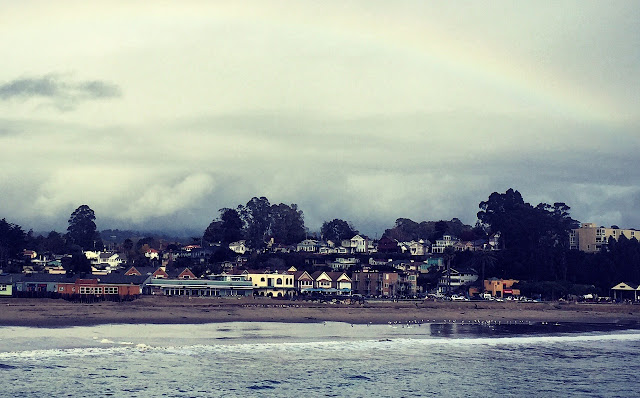Losing your Village
It takes a village. I remember hearing
those words a lot when my kids were little. Back when it was understood we were
all in this together; shuttling kids, killing time at local parks, comparing
notes on everything from developmental milestones to the latest parenting
trends. Our roles as parents was new and sometimes scary, so like prey in the
face of danger, instinctively we banded together.
Then overnight, despite all warnings,
our relatively pliable children turned into the rigid teens we never thought
we'd have. As a laid back parent, I felt lucky to have teenagers still willing
to openly communicate. So openly, there were times I had to resist stuffing my
fingers in my ears while singing, la la
la la la. After these talks I'd paw through memories of my own adolescence for
reassurance that whatever they were up to was normal. Until it wasn't, and we
were forced to reckon it was time to tighten the reins.
Even though we took action in our
home, parental guidance can feel futile against the power of peers. So I did
what I thought any responsible parent would do and reached out to their friends'
parents. After all, it takes a village. And as a village we could share notes, pool
resources, design a solution that would send a message that we're a united
front. It's not our job to make our kids like us, so together we could be, as
my son frames it, "assholes" together. According to our kids nobody
else's parents cared: Why were we making
such a big deal out of everything?
What I got was a surprisingly mixed
bag. Some parents seemed blindsided by the things our kids were doing—smoking
weed, drinking, showing off their cache of stolen prescription pills from
grandparents' cabinets on Instagram. Others got defensive and recoiled. Some
tried to do their part, but simply lacked the follow through, or caved entirely
to the mindset that, kids will be kids,
at least at our house we know they're safe. I was offered parenting advice,
as if whatever the issue was mine alone. Alternately pitied and reprimanded, too
often the presumption became; if I'm the source, my kid must be the problem. It
left me feeling frustrated, inept, and like a meddling helicopter parent, which
I'd made a conscious effort never to be. My plan not only backfired, it left my
daughter, in particular, vulnerable to exclusion and bullying. By calling on
parents I'd unwittingly made things worse, and now my kids no longer trusted me.
I watched helpless as my daughter's large
circle of friends dwindled to a ragged few. Kids she didn't even particularly
like, who helped accelerate her downward spiral, but were better in her mind
than no friends at all. She became a shell of the outgoing, delightful person
we once knew. By the time we delivered her to a wilderness program in Utah, she'd
been banned from no less than ten previous friends' homes for behaviors they,
to varying degrees, had engaged in together.
Reaching a point of such desperation
that you feel forced to seek help outside the home can feel a lot like failure.
But it wasn't just ours. Driven by fear and judgment, my community had failed. I
found myself an outsider, holding my breath. As my daughter's class mates finished
up and graduated middle school, my would-be graduate was out in the woods hauling
a forty-pound pack and rubbing sticks together. I'd bump into parents we've
known for ages who, even as our household was spinning upside down by a thread,
behaved as though nothing was amiss. Most didn't enquire about our daughter, nor
how we were holding up. And while I can understand wanting to avoid any awkwardness
in front of the dairy section, what hurt was the assumption that by ignoring it,
we were somehow being spared.
It's true, feelings of shame and
isolation are a running theme among wilderness parents, a natural consequence
of our fear of being judged. Yet to me there's less shame in having a teen
who's struggling than owning a fat dog. Nobody knows better than a wilderness
parent that any young person can go
from 0 mph to 100 overnight. No matter how smart, sensitive, athletic or
otherwise accomplished, or how well we think we know them. Some teenagers, like
mine, don't just toe the waters of adolescence, they cannonball from the
rooftop. And whatever teens confide to us, you can bet it's just the tip of the
iceberg. We don't know squat.
For months I lamented the loss of my
village. But then over time, and consequently due to the circumstances, certain
friendships deepened. Neighbors who'd watched from afar and guessed something
was up, came forward with kind words. Through our educational consultant and
word of mouth, we came in contact with a network of parents on the same journey.
As another wilderness mom pointed out, this is our village. As for the other, some
words of advice. Unless space is requested, give support when a family is dealing
with a struggling teen. Equally hurtful is the misinformation that spreads, when
all anyone has to do is ask. Talk to
us, not about us, and try offering a hug before pointing a finger. If our kids notice,
wouldn't it be lovely that they learn to do the same.
Recommended Reading: Brad
M. Reedy's, The Journey of the Heroic Parent



Comments
Post a Comment